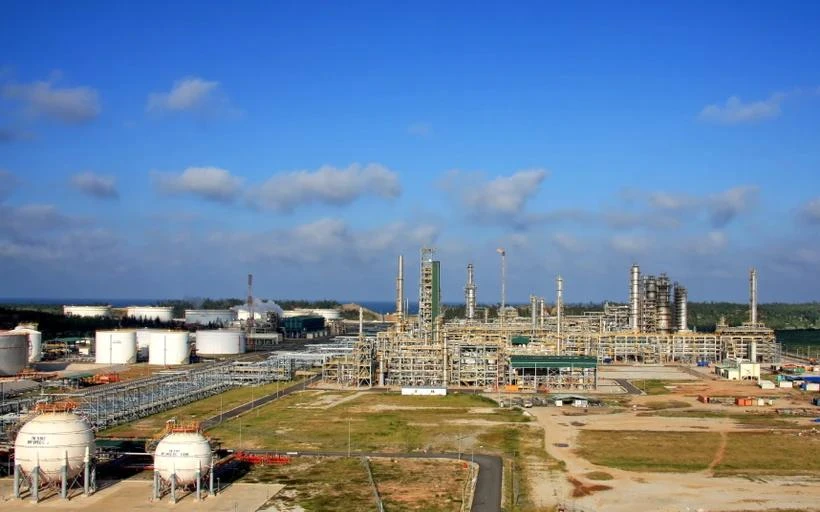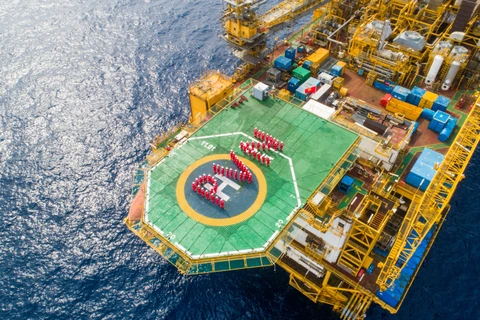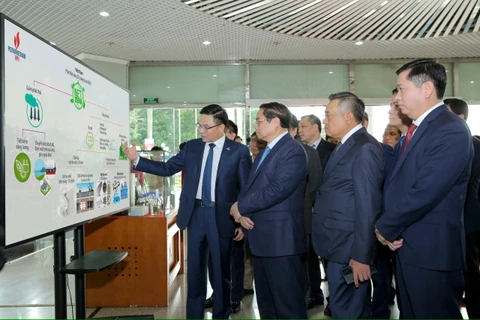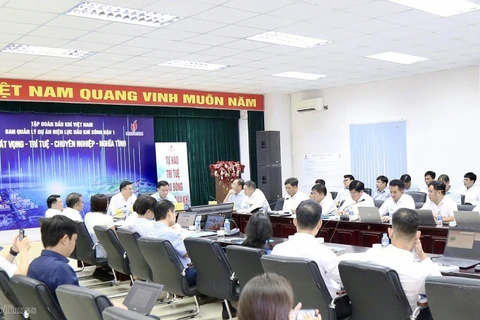
Hanoi (VNA) – The Vietnam Oil and Gas Group (Petrovietnam) has been able to master the world’s state-of-the-art technologies and now stands a chance to transform itself to become a national industry-energy group.
Petrovietnam was set up on September 3, 1975 with the goal of helping guarantee national energy security and serving as a pillar of economic support for national development.
Shortly after the date of national reunification (April 30, 1975), on September 3 the same year, the Vietnam General Department of Oil and Gas, the predecessor of Petrovietnam, was established under the Council of Government in efforts to realise late President Ho Chi Minh’s aspiration to develop an oil and gas industry for the country.
With the special attention from the Party and State, the oil and gas sector has unceasingly developed and established itself as an important economic-technical industry that helps ensure the national energy security, food security, economic security, and sovereignty security at sea.
Over the past 49 years, Petrovietnam has built a complete and harmonious oil and gas system, from the exploration, drilling and extraction of oil and gas to the development of the gas and power industry, along with high-quality technical services. Therefore, it has become the nucleus in the formation of many industrial parks in Ba Ria - Vung Tau, Dong Nai, Ca Mau, Quang Ngai, Ha Tinh and Thanh Hoa provinces, among others.
The harmonious development of its oil and gas industry chain has helped fundamentally change the economic structure, bring substantial revenue to the state budget, and basically meet domestic energy and fertiliser demand.
As of December 31, 2023, Petrovietnam's consolidated assets amounted to over 1 quadrillion VND (40.64 billion USD), while its with equity capital was around 532 trillion VND. From 1986 to 2023, the group gained more than 524 billion USD in revenue, or 10-13% of the country's GDP, and contributed over 129 billion USD to the state budget.
The figures are vivid demonstrations for the corporation’s strong influence on the socio-economic development of the country.

As a locomotive of the economy, PetroVietnam has weathered all difficulties while penning and harmoniously implementing solutions to complete the tasks entrusted by the Party and State. Particularly, it stood firm amidst the “double crisis” of a steep decline in oil prices and the COVID-19 pandemic, and smashed various business and production records during 2020-2023.
Since there is large room for further development, Petrovietnam does not satisfy with the achievements that it has carved out, said its Chairman Le Manh Hung, highlighting the group’s scale is still smaller than those of other oil and gas corporations in regional countries like Thailand, Malaysia and Indonesia.
“It is necessary for the group to make a strong and breakthrough shift in its business model so as to catch up with regional peers and contribute more to national socio-economic development in the new period”, he stressed.
Hung said the Party and State’s strategic orientations as well as completion of related mechanisms and policies have created favourable conditions for Petrovietnam to overcome challenges, and develop itself into a national industrial-energy group with sharp competitive edge in the region and the world.
With a view to concretising the target, the group has identified seven groups of tasks and solutions that need to be drastically and harmoniously carried out, including closely working with competent authorities to build and complete mechanisms and policies to facilitate rapid and sustainable development of the oil and gas sector, completing smart infrastructure, improving corporate management, attracting and enhancing the efficiency of the use of capital for development, developing a restructuring plan, promoting digital transformation, and bolstering international cooperation./.






















